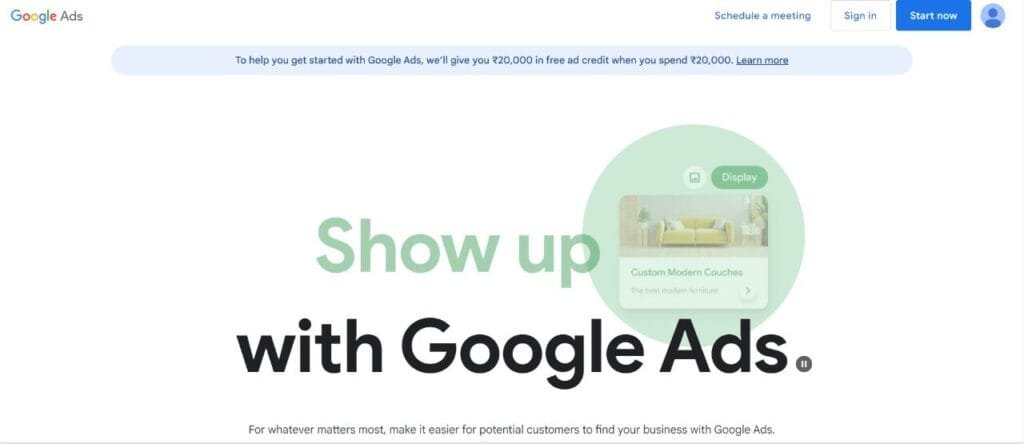This Article has been revised, edited and added to, by Poulomi Chakraborty.
- Understanding the Digital Tax-seeker
- SEO Keyword Optimization for Tax Content
- Building Trust through Tax Content
- Demonstrating Expertise through Comprehensive and Updated Content
- Fostering Engagement and Trust through Interactive Content
- User Experience (UX) & Interactive Tax Tools
- Integrating Interactive Tax Tools
- Local SEO for Tax Professionals
- Building Local Community Engagement
- Link Building for Authority in Tax Planning
- Strengthening Partnerships for Mutual Benefit
- Monitoring and Refining Your Link Building Strategy
- Creating a Multimedia Tax Experience
- Harnessing the Power of Podcasts for In-depth Discussions
- Interactive Webinars and Workshops for Real-time Engagement
- Tax SEO Analytics: Measuring Success and Refining Strategy
- Analyzing User Behavior for Enhanced Content Strategy
- Leveraging Conversion Tracking to Measure ROI
- Conclusion: Merging Tax Wisdom with SEO Mastery
In the maze of life’s financial responsibilities, taxation stands out as both a challenge and an opportunity. While it’s inevitable, understanding the intricacies of tax planning can pave the way for significant savings and financial stability. In the digital age, individuals and businesses alike turn to the internet to navigate the complexities of tax rules and strategies. Hence, for financial consultants, accountants, and tax planning services, crafting an effective SEO strategy is pivotal to ensure their expertise reaches those who need it most. Welcome to the junction where tax wisdom meets digital optimization – let’s embark on a journey to demystify SEO for efficient tax planning.
Understanding the Digital Tax-seeker

In the realm of digital tax planning, understanding the nuances of your target audience’s behavior is paramount. As startup founders, your approach should not only align with general SEO practices but also resonate deeply with the specific needs and behaviors of digital tax-seekers. This section understanding will guide your content creation, making it more relevant, engaging, and ultimately, more effective.
The Evolving Profile of the Tax-Seeker
Today’s digital tax-seeker is not just looking for generic advice; they are in search of personalized solutions that align with their unique financial landscapes. This is particularly true for entrepreneurs and startup founders, who face distinct challenges and opportunities when navigating the tax world. Recognizing this, your content should address the sophisticated nature of tax planning for startups, from optimizing tax liabilities to leveraging tax credits that fuel growth.
Bridging the Gap with Personalized Content
To truly resonate with digital tax-seekers, your content must go beyond the surface level. It should reflect an understanding of the varied financial scenarios startups may encounter. This involves discussing the implications of different business structures on taxation, the importance of accurate expense tracking to maximize deductions, and strategies for managing cash flow with tax obligations in mind. The goal is to provide content that acts as a roadmap, guiding startups through the labyrinth of tax planning with clarity and confidence.
Analyzing Search Intent and Behavior
The search intent of tax-seekers can vary widely, from those looking for immediate tax filing solutions to others planning long-term tax strategies. For startup founders, the focus often leans towards strategic planning to enhance their financial efficiency and compliance. This necessitates content that is both informative and actionable, helping founders understand not just the “what” but the “how” of tax planning.
Crafting Content That Speaks to Intent
To capture the attention of startup founders, your SEO strategy should include content that tackles both immediate and long-term tax planning strategies. This could range from navigating quarterly tax payments to understanding the impact of international tax laws on a global startup. The content must be crafted in a way that it speaks directly to the founders’ intent, whether they are seeking to minimize their current tax burden or strategize for future financial growth.
The Importance of Timeliness and Relevance
In the fast-evolving world of taxation and finance, the relevance of your content is key. Tax laws and regulations change frequently, and staying abreast of these changes can position your platform as a trusted resource. For startups, which must remain nimble and adaptable, this information is not just helpful—it’s crucial.
Keeping Content Updated and Forward-Looking
To serve the digital tax-seeker effectively, ensure that your content strategy includes regular updates that reflect the latest tax laws, credits, and deductions applicable to startups. Additionally, consider content that anticipates future trends in taxation and financial planning. This could involve analyses of proposed tax legislation or insights into how evolving economic conditions might impact startup taxation.
Leveraging Technology for Engaging Experiences
In an era where user experience can make or break engagement, leveraging technology to simplify complex tax concepts is a must. For startups, engaging with content that demystifies tax planning through interactive tools or simplified visual representations can be incredibly beneficial.
Implementing Interactive and Visual Learning Tools
Incorporate tax calculators, scenario simulations, and visual aids into your content to help startup founders visualize tax planning strategies. This not only aids in comprehension but also encourages deeper engagement with your content, making it more likely that founders will return to your platform for future tax planning needs.
A Strategic Approach to Engaging Startup Founders
In sum, understanding the digital tax-seeker, particularly within the startup ecosystem, requires a blend of personalized content, strategic insights, and innovative engagement methods. By tailoring your SEO and content strategies to meet these needs, you can build a platform that not only ranks well in search engines but also becomes an indispensable resource for startup founders looking to navigate the complexities of tax planning. This strategic approach will position you at the forefront of digital tax planning, making your platform the go-to resource for tax-savvy startups.
SEO Keyword Optimization for Tax Content

In the digital arena, where every click can lead to a potential client or a missed opportunity, the art of keyword optimization becomes a critical tool in the arsenal of tax planning content for startups. This section aims to guide startup founders through the intricate process of identifying and leveraging the right keywords to ensure their tax-related content reaches its intended audience effectively.
Understanding the Startup Founder’s Search Behavior
Startup founders often wear multiple hats, juggling roles from financial planning to marketing. When they search for tax information, their queries are driven by specific needs such as maximizing deductions, understanding tax obligations for new employees, or strategies for international tax compliance. Recognizing these unique search behaviors is the first step in crafting a keyword strategy that captures the essence of what startup founders are looking for.
Crafting Content That Meets Specific Needs
To resonate with startup founders, content must be crafted around keywords that reflect the specific challenges and opportunities they face. This involves delving into the nuances of tax planning as it applies to the startup ecosystem, such as leveraging R&D tax credits, navigating the tax implications of venture capital funding, or understanding the tax benefits of various business structures. By aligning your content with the detailed aspects of startup finance, you position your platform as a valuable resource for founders seeking tailored tax advice.
Leveraging Long-tail Keywords for Niche Queries
The complexity of tax planning for startups lends itself well to the use of long-tail keywords. These longer, more specific phrases capture the nuanced search intents of startup founders, who often seek detailed information on very specific tax issues.
Integrating Long-tail Keywords into Comprehensive Guides
To tap into the potential of long-tail keywords, consider developing comprehensive guides that address specific aspects of startup taxation, such as “how to claim startup tax credits effectively” or “the ultimate guide to tax planning for tech startups.” These guides not only serve to rank for niche queries but also provide immense value to founders seeking in-depth insights into their tax planning efforts.
The Role of Voice Search in Modern Tax Queries
As voice search becomes increasingly prevalent, optimizing for conversational queries is crucial. Startup founders, often on the go, may use voice search to quickly find answers to pressing tax questions. This shift towards voice search demands a strategy that incorporates natural language and question-based keywords.
Adapting Content for Voice Search Optimization
To align with the conversational nature of voice search, content should be structured to answer specific questions that startup founders might ask, such as “What are the new tax deductions available for startups?” or “How can startups optimize tax payments?”. By crafting content that directly answers these questions, you enhance the visibility of your tax planning resources in voice search results, making it easier for busy founders to find the information they need.
Advanced Keyword Strategies for Competitive Edge
Beyond the basics of keyword research, there are advanced strategies that can give your tax content a competitive edge. This includes analyzing competitor keyword strategies to identify gaps and opportunities, using keyword tools to uncover emerging trends in startup taxation, and continuously refining your keyword selection based on performance analytics.
Continuously Evolving Keyword Strategy
The landscape of startup taxation is ever-changing, with new laws, regulations, and strategies emerging regularly. Your keyword strategy should be dynamic, adapting to new trends and regulatory changes to ensure your content remains relevant and visible to startup founders. This means regularly reviewing and updating your keywords, based on both changes in the tax landscape and the performance data of your existing content.
Strategic Keyword Optimization as a Catalyst for Visibility
For startup founders navigating the complexities of tax planning, finding the right information at the right time can be transformative. By employing a strategic approach to SEO keyword optimization, you can ensure that your tax content not only reaches this audience but also provides them with the valuable insights they need to make informed decisions. This not only enhances the visibility of your content but also establishes your platform as a trusted resource in the startup community, ultimately driving engagement, loyalty, and action.
Building Trust through Tax Content

In the digital world, trust is currency, and for startup founders, trusting a source for tax advice means finding content that not only answers their questions but does so with authority and expertise. This section explores how to position your content as a beacon of trust and knowledge in the vast sea of online tax information.
Expert Contributions and Collaborations
Involving recognized tax experts, seasoned accountants, and financial advisors in the creation of your content can significantly elevate its credibility. Interviews, guest posts, and collaborative pieces with these experts not only enrich your content with deep insights but also attach a seal of trust to your advice. For startup founders, knowing that the information comes from individuals who have navigated the tax landscape successfully is invaluable.
Showcasing Real-world Applications and Success Stories
Incorporating case studies and success stories into your tax content can demonstrate the practical application and benefits of your advice. For startups, seeing how specific tax strategies have been successfully implemented by others in their field can be incredibly reassuring. It not only proves the efficacy of your recommendations but also illustrates your understanding of the challenges and opportunities within the startup ecosystem.
Leveraging Testimonials and Reviews
Feedback and testimonials from startups and businesses that have benefited from your tax advice add a layer of social proof to your content. Encouraging your clients to share their experiences and how your guidance helped them navigate their tax obligations or leverage tax advantages can significantly enhance trust among your audience.
Demonstrating Expertise through Comprehensive and Updated Content
Tax laws and regulations are constantly evolving, and content that stays ahead of these changes reflects a commitment to providing the most accurate and actionable advice. For startup founders, whose businesses can be significantly impacted by these changes, updated and comprehensive content is not just helpful—it’s essential.
Regular Updates and Insights into Tax Changes
Committing to regular updates of your content to reflect the latest tax laws, deductions, credits, and strategies is crucial. Additionally, providing insights into how these changes can specifically affect startups helps founders understand the implications for their business, demonstrating your expertise and commitment to their needs.
Advanced Guides and Deep Dives
While basic tax information is widely available, content that offers advanced guides, deep dives into specific topics, and explorations of niche tax areas serves to demonstrate your in-depth knowledge. For startups, which may encounter unique tax situations, this type of content can be particularly valuable.
Fostering Engagement and Trust through Interactive Content

Engagement is a key pillar of building trust. Interactive content not only aids in understanding complex tax concepts but also opens up avenues for direct interaction with your audience.
Tax Calculators, Webinars, and Q&A Sessions
Offering tools like tax calculators, hosting webinars on tax planning, and conducting Q&A sessions can make your content more engaging and accessible. For startup founders, the ability to interact directly, ask questions, and receive personalized advice can significantly boost trust and reliance on your content.
Encouraging Community Interaction
Creating a community space for startup founders to discuss tax strategies, share experiences, and seek advice fosters a sense of belonging and trust. This can be facilitated through forums, comment sections, or social media groups linked to your content platform.
Cultivating Trust with Strategic Tax Content
For startup founders, finding trusted tax advice is paramount. By focusing on expert-driven content, showcasing real-world applications, staying abreast of tax law changes, and engaging directly with your audience, you can build a content platform that not only ranks well in search engines but also stands as a trusted resource in the startup community. This strategic approach to creating tax content will not only enhance your SEO efforts but also establish long-lasting relationships with startup founders, guiding them through their tax planning journey with confidence and clarity.
User Experience (UX) & Interactive Tax Tools
The user experience encompasses every aspect of the user’s interaction with your website or digital platform. For startup founders, who often work within tight schedules and appreciate efficiency and clarity, a website that offers seamless navigation and easy access to valuable information is key.
Streamlining Navigation to Tax Resources
Creating a straightforward and intuitive website structure ensures that startup founders can easily find the tax information they need. This includes a well-organized menu with clear categories related to different tax topics, such as deductions, credits, and planning strategies specific to startups. Simplifying the path to access these resources reduces frustration and enhances the likelihood of engagement.
Optimizing for Speed and Responsiveness
In the digital age, speed is crucial. A website that loads quickly on both desktop and mobile devices is essential for keeping the attention of startup founders. Responsiveness, or the ability of your site to adapt to different screen sizes, ensures that users have a positive experience regardless of how they access your content. This technical aspect of UX can significantly impact the perception of your platform’s reliability and professionalism.
Integrating Interactive Tax Tools
Interactive tools not only engage users but also provide them with personalized insights, making complex tax information more accessible and understandable. For startups, tools that offer tailored advice or calculations based on their specific scenarios can be invaluable.
Customizable Tax Calculators
Developing tax calculators that allow startup founders to input their own data to receive specific insights or calculations can transform the abstract concepts of tax planning into tangible figures. Whether it’s calculating potential deductions, estimating tax liabilities, or exploring the tax benefits of different business decisions, these tools empower founders with actionable data.
Interactive Learning Modules
Engaging learning modules that guide users through the complexities of tax laws relevant to startups, using interactive scenarios and real-life examples, can enhance understanding and retention. This approach to learning not only makes tax planning more accessible but also more engaging, encouraging founders to dive deeper into topics that affect their business.
Providing Real-time Assistance
Incorporating features like live chat support or a FAQ section that utilizes AI to provide real-time answers to common tax questions can significantly enhance the user experience. For startup founders looking for quick clarifications or guidance, immediate access to support can make your platform a preferred resource for tax information.
Encouraging User Feedback and Interaction
Creating mechanisms for users to provide feedback on the tools and resources offered not only aids in improving these offerings but also fosters a sense of community and investment in the platform. For startups, the opportunity to influence the resources that aid in their tax planning can ensure that your platform remains relevant and valuable to their needs.
Fostering a User-Centric Tax Planning Environment
By focusing on the user experience and integrating interactive tax tools, you create an environment that not only meets the informational needs of startup founders but also engages them in a meaningful way. This approach not only enhances the effectiveness of your SEO strategy by increasing engagement and reducing bounce rates but also positions your platform as a go-to resource for startups seeking to navigate the complexities of tax planning with confidence. Through strategic UX design and the incorporation of interactive elements, you can transform the daunting task of tax planning into a more manageable and even empowering process for startup founders.

Related: Check out our free SEO suite

Local SEO for Tax Professionals
For tax professionals targeting startup founders, mastering local SEO is a critical step towards ensuring that their services are visible to a highly relevant and local audience. This involves a multifaceted approach that goes beyond basic listing optimization to truly engaging with the local startup ecosystem.
Optimizing for Geo-specific Tax Queries
Startups often search for tax advice that is not only relevant to their industry but also specific to their location, given the variance in tax regulations and incentives from one region to another. Tailoring your content to address these geo-specific queries can significantly improve your visibility in local search results.
Crafting Content That Addresses Local Tax Nuances
Developing content that delves into the specifics of local tax laws, available tax credits, and incentives for startups can position you as a go-to resource for local businesses. This could involve detailed guides on maximizing state-specific tax benefits or navigating local tax filing procedures, offering immense value to startup founders operating in your area.
Enhancing Local Listings for Maximum Impact
Your Google My Business (GMB) profile is often the first point of contact between your tax advisory service and potential startup clients. Ensuring that this profile is not only complete but also optimized for engagement is crucial.
Utilizing All Available Features of Your GMB Profile
Beyond the basics of name, address, and phone number, your GMB profile should include detailed service descriptions, business hours, and frequently updated posts that highlight your expertise in dealing with startup tax matters. Encouraging satisfied clients to leave reviews can also boost your profile’s visibility and attractiveness.
Building Local Community Engagement

Engagement with the local startup community can significantly enhance your local SEO efforts. This not only increases your visibility in local search results but also establishes your reputation as a supportive pillar of the startup ecosystem.
Participating in and Hosting Local Startup Events
Involvement in local startup events, whether through sponsorships, hosting informative tax workshops, or participating in panel discussions, can increase your visibility and relevance in local search results. These activities demonstrate your commitment to the local startup community and can lead to valuable backlinks and mentions from local news outlets and community blogs.
Leveraging Local Media and Partnerships
Collaborating with local business incubators, accelerators, and co-working spaces to offer tax planning workshops or consultations can further enhance your visibility within the local startup community. Partnering with local media to contribute tax advice columns or interviews can also increase your brand’s local presence.
Engaging with Local Queries on Online Platforms
Actively participating in local online forums and social media groups focused on business and startups can help establish your authority and relevance in the local tax advisory space. Answering tax-related queries and offering insights on local tax matters can drive traffic to your website and improve your local search rankings.
A Localized Approach to Connecting with Startups
For tax professionals aiming to reach startup founders, a strategic local SEO approach is indispensable. By optimizing for local search, engaging with the community, and providing valuable, location-specific content, tax advisors can significantly improve their visibility to startups in their area. This not only benefits the tax professionals in terms of increased client engagement but also supports the startup ecosystem by providing founders with the crucial tax advice they need to thrive. Through these targeted efforts, tax advisors can forge strong connections with the local startup community, positioning themselves as indispensable partners in the founders’ entrepreneurial journey.
Link Building for Authority in Tax Planning
In the world of SEO, the quality and relevance of backlinks to your website can significantly influence your authority in the eyes of search engines. For tax advisors aiming to reach startup founders, building a robust backlink profile involves strategic efforts to gain mentions and links from reputable sources within the startup and financial sectors.
Engaging with Industry Influencers and Thought Leaders
One of the most effective strategies for building quality backlinks is to engage with influencers and thought leaders within the tax planning and startup ecosystem. This can include collaboration on content, joint webinars, or guest appearances on podcasts that cater to your target audience of startup founders.
Leveraging Guest Posting Opportunities
Writing authoritative articles for well-established financial, business, and startup-focused websites not only positions you as an expert in your field but also provides valuable backlinks to your site. When selecting platforms for guest posting, prioritize those with a strong reputation and a relevant audience to ensure the backlinks you acquire genuinely enhance your site’s authority.
Utilizing Case Studies and Real-world Success Stories
Publishing detailed case studies that highlight how your tax planning strategies have benefited startups can be a powerful tool for link building. These case studies, when shared by the startups themselves or featured in industry publications, generate natural backlinks that bolster your website’s credibility.
Creating Shareable, High-value Content
Content that offers unique insights, practical advice, or comprehensive guides on tax planning for startups is more likely to be shared and linked to by other websites. This can include in-depth analyses of tax legislation changes, downloadable resources for tax planning, or interactive tools that assist with tax calculations. The key is to create content that provides real value to your target audience, encouraging organic sharing and linking.
Strengthening Partnerships for Mutual Benefit
Building strategic partnerships with other businesses and organizations within the startup ecosystem can lead to valuable link-building opportunities. This includes collaborations with startup incubators, financial institutions, and educational platforms that serve your target audience.
Participating in Online Forums and Discussions
Active participation in online forums, Q&A sites, and discussion groups related to tax planning and startups can lead to natural backlink opportunities. By providing expert advice and engaging in meaningful conversations, you can encourage users to visit your site for more information, resulting in organic links that enhance your site’s authority.
Hosting and Participating in Webinars and Online Workshops
Webinars and online workshops offer a unique opportunity to demonstrate your expertise and engage with a wide audience. By hosting these events in partnership with other reputable organizations or as a guest expert, you can gain backlinks from event listings, promotional materials, and follow-up content published by attendees and partners.
Monitoring and Refining Your Link Building Strategy

An effective link-building strategy requires ongoing monitoring and refinement to ensure that the links you acquire continue to contribute positively to your website’s authority. Utilizing tools to track the quality and relevance of your backlinks, as well as the traffic they generate, can help you refine your approach and focus your efforts on the most beneficial strategies.
Link Building as a Pillar of Authority
For tax professionals and advisory firms targeting startup founders, link building is not just an SEO tactic—it’s a foundational strategy for establishing authority and trust within the niche. By focusing on quality over quantity, engaging with the broader startup ecosystem, and continuously refining your strategy based on performance data, you can enhance your online presence and position yourself as a go-to resource for tax-savvy startups. Through strategic link-building efforts, you can ensure that your expertise reaches those who need it most, facilitating growth and success for both your firm and the startups you serve.
Creating a Multimedia Tax Experience
In the digital age, video content reigns supreme in capturing attention and enhancing understanding. For tax professionals targeting startup founders, incorporating video and animation into their content strategy can demystify complex tax concepts and regulations.
Crafting Educational Tax Planning Videos
Creating video content that breaks down complex tax planning strategies into digestible, easy-to-understand segments can significantly boost engagement. These videos can range from tutorials on specific tax deductions applicable to startups to animated explainers that visualize the impact of tax laws on startup finances. The key is to present information in a manner that is both informative and captivating, ensuring that startup founders not only understand the content but are also engaged by it.
Utilizing Animation to Simplify Complex Concepts
Animation offers a unique avenue for simplifying complex tax concepts, making them accessible to founders who may not have a financial background. Animated infographics and explainer videos can visualize tax processes, benefits, and obligations in a way that is both engaging and informative, facilitating a deeper understanding of tax planning strategies.
Harnessing the Power of Podcasts for In-depth Discussions
Podcasts have surged in popularity as a medium for in-depth discussions on a wide range of topics, including tax planning. For startup founders, podcasts can provide valuable insights into tax strategies, legislative changes, and financial planning.
Launching a Tax Planning Podcast Series
Creating a podcast series that delves into tax planning for startups can attract founders looking for actionable advice they can listen to on the go. Featuring guest speakers such as tax experts, successful entrepreneurs, and financial advisors can add depth to the discussions, providing listeners with a range of perspectives on tax planning and financial management.
Leveraging Podcasts for Storytelling
Podcasts offer a unique opportunity for storytelling, allowing tax professionals to share real-life examples of successful tax planning strategies employed by startups. These stories can not only illustrate the practical application of tax advice but also inspire startup founders with tangible examples of how tax planning can contribute to their success.
Interactive Webinars and Workshops for Real-time Engagement
Interactive webinars and workshops provide a platform for real-time engagement with startup founders, allowing for direct communication, Q&A sessions, and live demonstrations of tax planning tools and strategies.
Conducting Live Tax Planning Sessions
Hosting live tax planning sessions where startup founders can ask questions and receive immediate feedback can significantly enhance the value of your content. These sessions can cover a wide range of topics, from navigating tax filings for startups to optimizing tax credits and deductions.
Offering Interactive Workshops
Interactive workshops that involve participants in activities such as scenario planning, tax calculation exercises, and case study analyses can provide hands-on experience with tax planning. This interactive approach not only engages participants but also helps cement their understanding of tax strategies through practical application.
A Multifaceted Approach to Tax Planning Education
For tax professionals seeking to engage startup founders, creating a multimedia tax experience offers a dynamic and comprehensive approach to tax planning education. By incorporating videos, podcasts, and interactive sessions, tax advisors can cater to diverse learning preferences, ensuring that startup founders not only receive the tax planning advice they need but are also engaged and inspired by the content. This multifaceted approach not only enhances the reach and effectiveness of your tax planning content but also establishes your platform as a versatile and valuable resource for startups navigating the complexities of tax planning.
Tax SEO Analytics: Measuring Success and Refining Strategy

Understanding the performance of your tax-related content through analytics allows for data-driven decisions that can significantly impact your SEO and content strategy’s effectiveness.
Establishing Key Performance Indicators (KPIs)
For startup founders, identifying the right KPIs is crucial in measuring the success of their tax content. These may include organic traffic, search engine rankings for specific keywords, bounce rate, engagement metrics (such as time on page and pages per session), and conversion rates (such as newsletter sign-ups or service inquiries). By focusing on these indicators, founders can gain insights into how well their content resonates with their target audience and drives desired actions.
Utilizing Analytics Tools
There are a plethora of analytics tools available that can provide a wealth of data on how your content is performing. Google Analytics, for example, offers insights into website traffic, user behavior, and conversion metrics. SEO-specific tools like SEMrush or Ahrefs can provide detailed information on keyword rankings, backlink profiles, and competitor analysis. By leveraging these tools, startup founders can obtain a comprehensive view of their content’s performance and identify areas for improvement.
Analyzing User Behavior for Enhanced Content Strategy
Diving deeper into user behavior metrics can reveal how visitors interact with your tax-related content, offering clues on how to refine and tailor your content to better meet their needs.
Understanding User Engagement
Analyzing metrics such as average time on page, bounce rate, and pages per session can help startup founders understand the level of engagement their tax content is generating. High engagement rates typically indicate content that is relevant and valuable to the audience, while low engagement rates may suggest the need for content optimization or improvement in user experience.
Segmenting Audience for Targeted Insights
Segmenting your audience based on behavior, demographics, or acquisition channels can provide more targeted insights. For example, understanding the behavior of users who arrive through organic search versus social media can help tailor content strategies to each segment’s preferences and behaviors, enhancing the relevance and effectiveness of your tax planning content.
Leveraging Conversion Tracking to Measure ROI
Conversion tracking is critical in understanding how effectively your tax content is driving business goals, such as lead generation or service inquiries.
Setting Up Goals and Conversion Paths
Defining clear goals in your analytics tools, such as form submissions, service inquiries, or newsletter sign-ups, allows you to measure how well your content converts visitors into leads or customers. Analyzing the paths users take before converting can also provide insights into which pieces of content are most effective at driving conversions, informing content creation and optimization strategies.
Refining Content for Higher Conversion Rates
Based on conversion data, startup founders can refine their content strategy to focus on high-performing topics, formats, and calls-to-action. A/B testing different elements of your tax content, such as headlines, layouts, and CTAs, can further optimize conversion rates, ensuring that your content not only attracts visitors but also prompts them to take desired actions.
The Strategic Role of Analytics in Tax Content Strategy
For startup founders, leveraging SEO and content analytics is not just about tracking performance; it’s a strategic imperative that informs every aspect of their tax content strategy. By setting clear KPIs, analyzing user behavior, and tracking conversions, founders can gain valuable insights that drive content optimization and refinement. This data-driven approach ensures that their tax planning content not only reaches its intended audience but also engages them effectively, driving conversions and contributing to the startup’s growth. Through ongoing analysis and adaptation, startup founders can continue to enhance their content’s impact, establishing their brand as a trusted authority in tax planning.
Conclusion: Merging Tax Wisdom with SEO Mastery
In the digital age, tax planning doesn’t merely exist within the confines of ledgers or consultation rooms. With the ever-growing reliance on online resources, bridging the gap between tax expertise and search engine optimization has become a necessity. Tax professionals armed with potent SEO strategies have the power to reach broader audiences, simplify complex regulations, and ensure that accurate, timely advice is but a click away.
By harnessing the best of both worlds, we can empower individuals and businesses to navigate the intricate labyrinth of taxation more efficiently. This convergence of tax-savvy wisdom and SEO prowess holds the promise of financial clarity, optimization, and ultimately, a more informed public.
As we conclude this exploration, it’s evident that the synergy between tax planning and SEO is not just beneficial but essential. It stands as a testament to how traditional expertise can be amplified manifold when coupled with modern digital strategies.
Read next:
- 19 Best Marketing Automation Software: Reviewed!
- 9 Best Supply Chain Management Software for E-Commerce (Compared!)
- 9+ Best Video Conferencing Software for Remote Teams: A Comprehensive Review
- 9 Best All-in-One Marketing Software: A Side-by-Side Comparison
- 9 Best Account-based Marketing Software: A Detailed Comparison



















